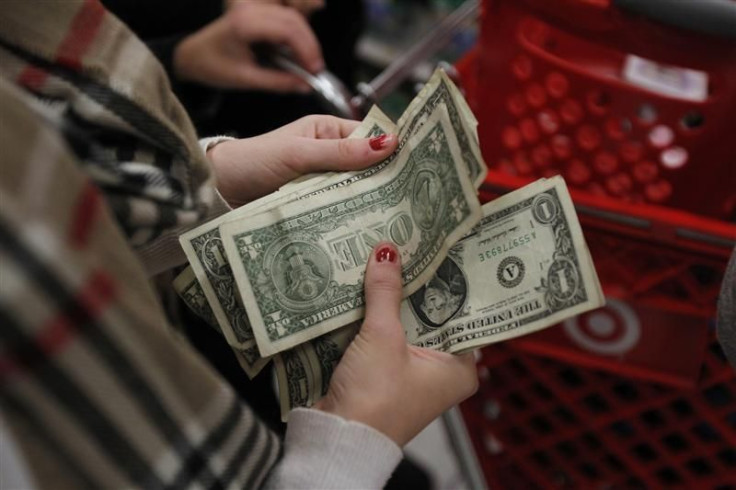US Consumer Confidence Rebounds In February: Conference Board

Despite lower household income and surging gasoline prices, the Conference Board's gauge of U.S. consumer confidence rose to 69.6 in February from January, topping economists' estimates of 61 and marking the highest reading since November.
January's level was revised to 58.4 from a prior estimate of 58.6. “Consumer confidence rebounded in February as the shock effect caused by the fiscal cliff uncertainty and payroll tax cuts appears to have abated,” said Lynn Franco, economic indicators director at the Conference Board, in a statement.
The Conference Board's barometer of consumers' expectations for the next six months, which is driven by changes in both equity and gasoline prices, rose quite sharply to 73.8, from 59.9. This index is now at a level consistent with annualized consumption growth of around 1 percent in the first quarter.
Meanwhile, the improvement in consumers’ assessment of current business and labor market conditions is more modest. The gauge of views on the present situation rose to 63.3 from 56.2.
However, the headline index is still well below the long-term average of 92, and “with gasoline prices rising and equity prices reversing some of the recent gains, it is possible that confidence will drop back in the coming months, said Amna Asaf, North America economist at independent research firm Capital Economics, in a note to clients.
Since the cutoff date for this survey, which was mid-February, gasoline prices have risen by an additional 10 cents a gallon, while equity prices are below their five-year-high levels.
A separate report showed sales of new single-family homes jumped 15.6 percent in January from December -- the largest increase since April 1993 -- to a 437,000-unit annualized rate. Sales outpaced estimates of a 381,000-unit rate and marked the highest pace since July 2008.
© Copyright IBTimes 2024. All rights reserved.












